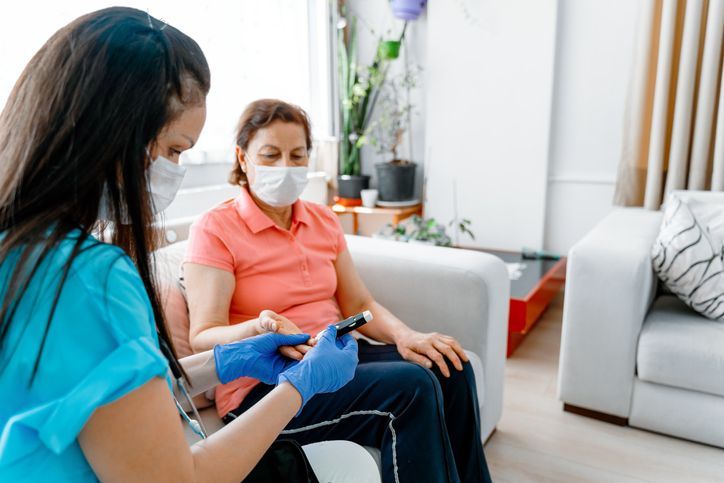
Taking care of Covid symptoms is one of the best way to combat the pandemic says Dr Debmalya Mukherjee PHOTO:Getty
Dr. Debmalya Mukherjee is a Modern School Barakhamba Road prodigy who has been practicing medicine in the US for more than two decades—his area of specialisation is, in his own words, “a doctor of medicine with certification in critical care and advanced life support.” And his most recent and ongoing accomplishment: “I am the proud healer of 800 plus Covid patients.”
He has some advice for his friends in India, given the situation that’s aptly described in some quarters as the ‘Tsumani like second-wave of Covid-19’ with nearly half of all new cases are Indians.
Dr Mukherjee is of the view that the “ultimate solution to this crisis is to care at home with good supervision.” And he explains the importance of home care so as to lessen the pressure on the already strained public health sector.
He makes some interesting suggestions, apart from the usual steps to maintaining a safe distance, he insists that people should have their own instruments to monitor their situation. “The first step is that everyone should have a Home Pulse oximetry and Electronic Blood pressure measurement kit,” he says, to monitor the progress and the “data can be remotely transferred to a qualified medical doctor” for consolation and medication.
Also, hospital reliance can be reduced if “there’s a good network of nurses who can help with infusion of IV (intravenous)Remdesivir or Oral Fabiflu at home.”
There are dire shortage of lifesaving medicines like Remdesivir or Fabiflu, so people should look at the alternatives to bridge this gap between the demand and supply. Dr Mukherjee recommends “steroids can be given at home” as there’s “no data to prove once a day shot of IV dexamethasone is superior to oral dexamethasone or oral solumedrol.”
There are a growing number of researches that points to “Steroids that are cheap and readily available medication and our analysis has confirmed that they are effective in reducing deaths amongst the people most severely affected by Covid-19,” Jonathan Sterne, a professor of medicine and epidemiology at Bristol University is reported to have said.
And last not least, arrange for oxygen at home, Amazon and other e-commerce portals are selling oxygen concentrators—for nearly Rs 50,000. “I gave an oxygen concentrator to everyone in my family,” says Dr Mukherjee. And his advice is that you should do the same. It’s a wise investment than to pay for an ambulance during an emergency–charge Rs 5,000 an hour of oxygen support on an ambulance apart from Rs 50,000 to take a patient to a hospital–and become a victim to outrageous rates being charged by the private health provider. And this way shortage of oxygen can be bridged.
Delhi hosted what organisers describe as the world’s first player auction in golf, launching ‘72…
An elderly woman recalls how her six-year-old granddaughter lay bleeding after a speeding car hit…
Municipal Corporation of Delhi plans a unified policy enabling RWAs to adopt and maintain parks…
A 17-year-old boy allegedly died by suicide after jumping before a moving train at Uttam…
Delhi High Court grants bail to 26-year-old Thar driver accused of mowing down two in…
Two Rohini men arrested for fatally stabbing one person and injuring another during a robbery…